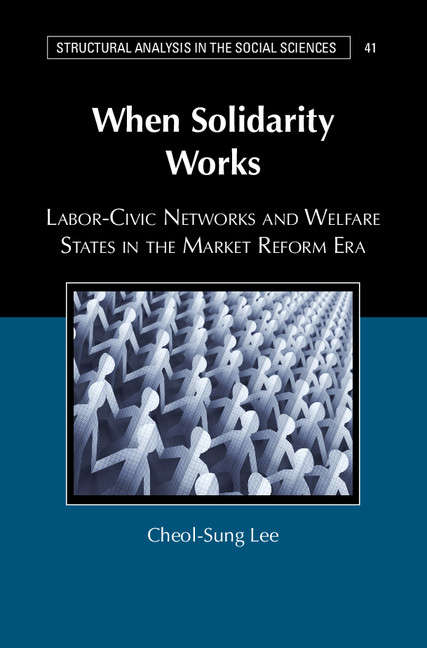Structural Analysis in the Social Sciences: When Solidarity Works
By: and
Sign Up Now!
Already a Member? Log In
You must be logged into Bookshare to access this title.
Learn about membership options,
or view our freely available titles.
- Synopsis
- Why do some labor movements successfully defend the welfare state even under the pressures of neo-liberal market reform? Why do some unions (and their allied parties and civic associations) succeed in building more universal and comprehensive social policy regimes, while others fail to do so? In this innovative work, Cheol-Sung Lee explores these conundrums through a comparative historical analysis of four countries: Argentina, Brazil, South Korea and Taiwan. He introduces the notion of 'embedded cohesiveness' in order to develop an explanatory model in which labor-civic solidarity and union-political party alliance jointly account for outcomes of welfare state retrenchment as well as welfare state expansion. Lee's exploration of the critical roles of civil society and social movement processes in shaping democratic governance and public policies make this ideal for academic researchers and graduate students in comparative politics, political sociology and network analysis.
- Copyright:
- 2016
Book Details
- Book Quality:
- Publisher Quality
- ISBN-13:
- 9781316800492
- Publisher:
- Cambridge University Press
- Date of Addition:
- 12/20/17
- Copyrighted By:
- Cheol-Sung Lee
- Adult content:
- No
- Language:
- English
- Has Image Descriptions:
- No
- Categories:
- Nonfiction, Business and Finance
- Submitted By:
- Bookshare Staff
- Usage Restrictions:
- This is a copyrighted book.
